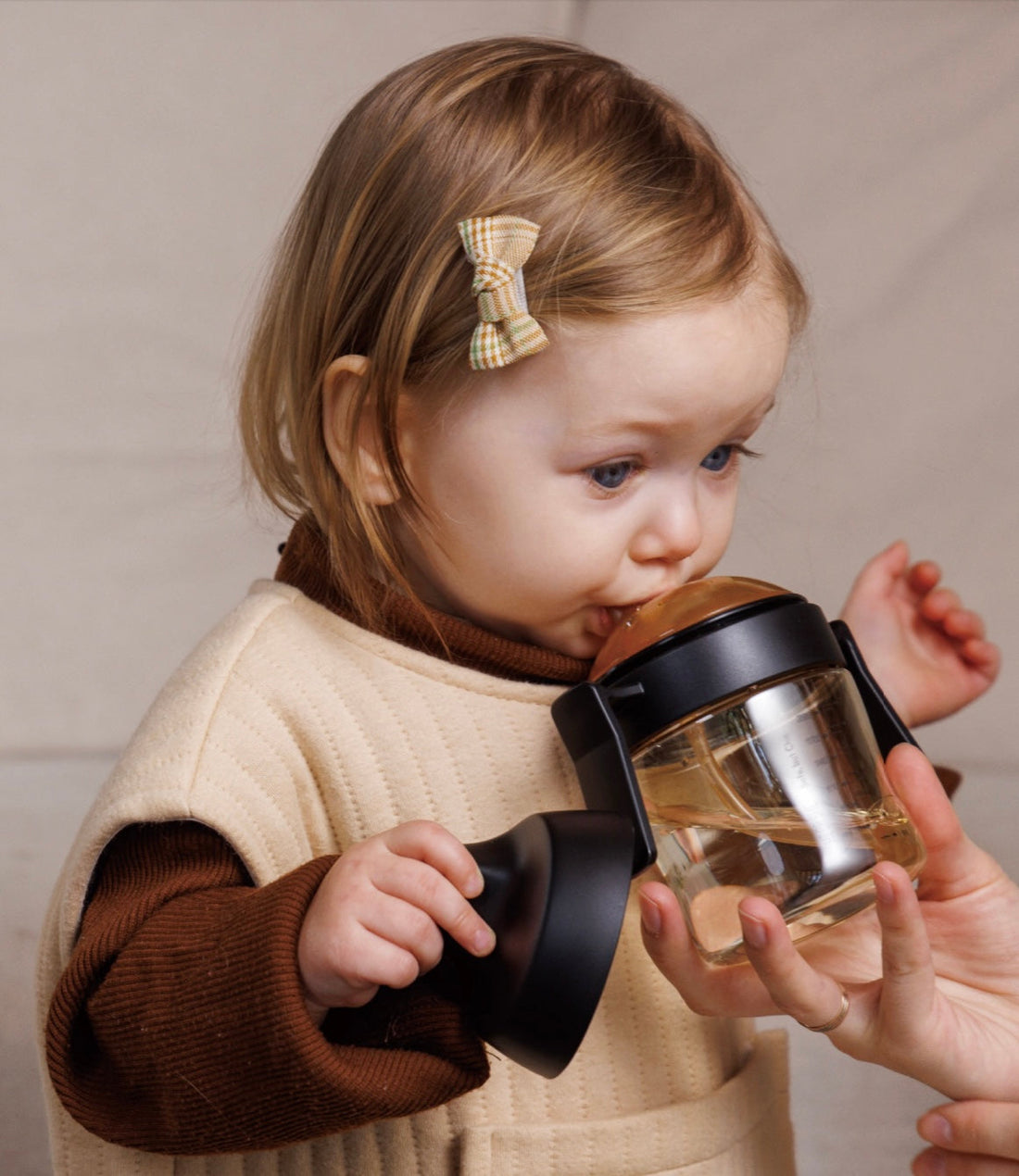
What's actually in a baby bottle? These materials should be avoided
Split
When it comes to your baby, you only want the best – of course!
But did you know that some materials in baby bottles or teething rings can do more harm than good? Some plastics seem harmless at first glance, but they contain substances that have no place in your child's mouth.
Let’s take a look together at which materials you should avoid – and why this is so important.
1. BPA – The hormone disruptor
BPA (bisphenol-A) was the standard ingredient in many plastic products for a long time – until it was discovered that BPA can act like the hormone estrogen in the body, disrupting the hormonal system. This is particularly dangerous for pregnant women, babies, and young children.
So it's good that many manufacturers have now switched to BPA-free, right?
Yes and no. BPA is often simply replaced with BPS (bisphenol-S) – and that is at least as harmful, if not worse.
Our tip: Don't just look for the "BPA-free" label, but choose products made of medical-grade silicone or glass.

2. PVC – The uninvited party guest
PVC (polyvinyl chloride) is a real plastic dinosaur – and unfortunately also a real problem substance.
It's cheap, versatile—and highly toxic. Harmful substances can be released, especially when children suck or bite it.
In short:
PVC belongs on construction sites, definitely not near babies' mouths. If a product says PVC on it, just leave it alone.
3. Phthalates – The hidden pollutants
Phthalates are plasticizers. They make hard plastics like PVC flexible and soft, as used in teething rings or squeezable toys.
Sounds useful? Not really, because phthalates don't bond permanently to plastic, but rather dissolve over time—especially if you suck on them.
The result: Babies ingest carcinogenic substances while sucking. Not a pleasant feeling, is it?
Fortunately, there are now lists (e.g. from BabyCenter) with the most common phthalate names that you can check when shopping.
Tip: If you see "phthalate-free" on the packaging, thumbs up! If not, keep looking.
So what can you trust?
When buying baby bottles, pacifiers, teething rings or drinking cups, rely on:
- High-quality, food-safe silicone
- BPA-, BPS-, PVC- and phthalate-free materials
- Manufacturers that pay attention to transparent materials and tested safety (like HEORSHE)

Parents' conclusion: You don't have to be a chemist, just well informed
The materials your baby has in his or her mouth every day should be absolutely safe and free of harmful substances – without compromise.
Don't worry – you're doing great!
With a little knowledge and the right brands on your side, you don't need to worry about hidden pollutants.
Our HEORSHE products are well thought out, high quality and, above all, free from harmful materials – because we want you to be able to concentrate on what really matters: the well-being of your child.
→ Discover our safe drinking cups, teething rings, and more now! Shop